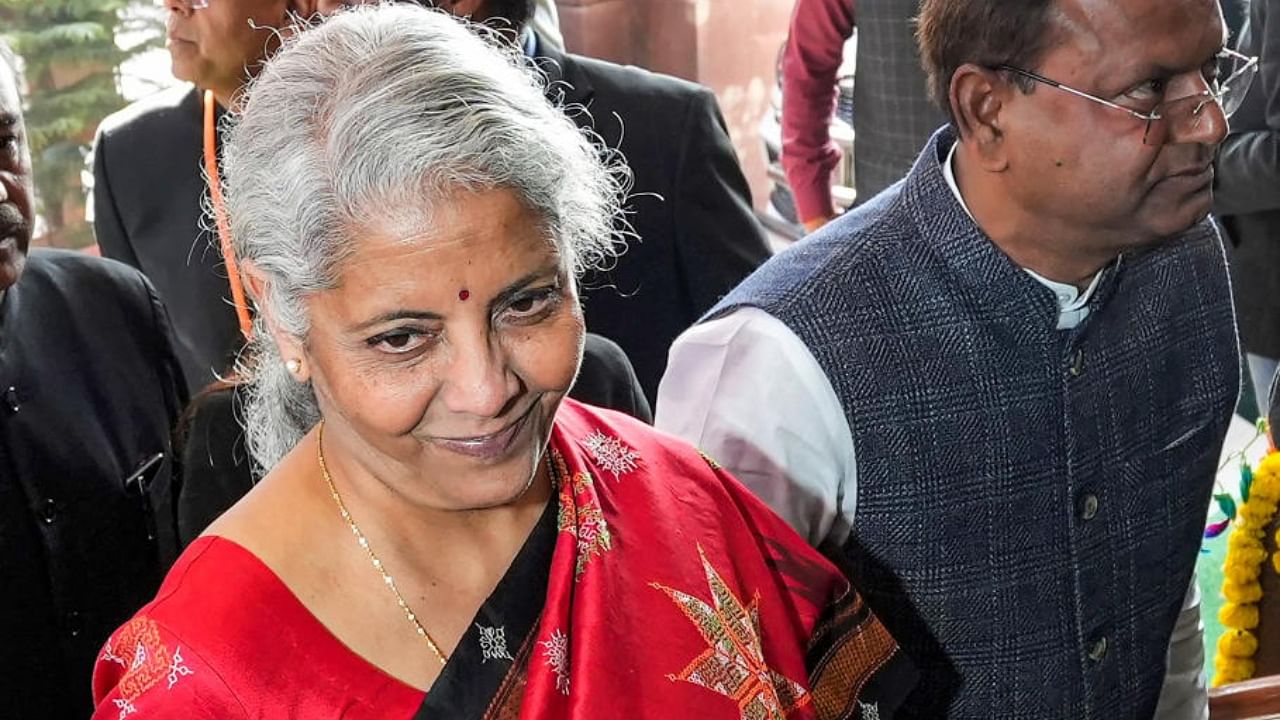
The announcements made in the Union Budget 2023-24 are mostly on the expected lines. The trend towards increasing capital expenditure with every budget aligns with the mission projects previously announced.
An increase in the outlay for the railways and coastal shipping reiterates the infrastructure development that the Narendra Modi-led National Democratic Alliance (NDA) government has been focusing on for years now. Most of these announced schemes will increase the pace of urbanisation, and, thus, the income and employment they will generate in the coming years.
An induced middle-class buoyancy is quite natural for the ruling dispensation's electoral attributes with urban India.
On February 1, Finance Minister Nirmala Sitharaman announced a significant outlay for the transition to green energy. Among the allocations, the allocation towards cities’ public infrastructure transition into the green mode needs to be examined. Scrapping old government vehicles and replacing them with private electric vehicles would not help in the minister's vision for 'sustainable cities of tomorrow'. Policy announcements concerning a green and sustainable city framework are critical to embody the stated vision in the Budget Speech.
The proposed Urban Infrastructure Development Fund (UIDF) could be considered as the next round of urban development package started with the Jawaharlal Nehru National Urban Renewal Mission (JNNURAM), continuing with SMART Cities, which is coming to an end in June. The announcement of forming a fund of Rs 10,000 crore is a welcome move, but how this money will be spent at the local level of tier two and tier three cities need to be detailed. Previous schemes have resulted in mixed outcomes, varying across the cities depending on the administrative and political leadership. Instead, if Indian cities must become world-class, a lot will depend on the transfer of powers to the local level, and the autonomy they enjoy. A budgetary allocation alone is not going to solve the challenges they face.
Interest-free loans, subject to the reforms to improve urban finance, is a step in the right direction though it can raise questions on the federal structure. The intentions are clear: the cities must improve their urban financial health. Efficient use of land resources, adequate resources for urban infrastructure, transit-oriented development, enhanced availability and affordability of urban land, and opportunities for all are clearly affected by the local administration's lack of power, capacity, and expertise. The Budget has emphasised the need for urban planning and efforts to push the state and city governments. Again, the goal shall be to build institutions and finance within the urban local bodies to own and carry out these universal urban fundamentals.
The Pradhan Mantri Awas Yojana (PMAY) has received a hike in the budget allocation, which would help in the ongoing affordable housing schemes in urban centres. The important announcement has been on the mechanical desludging of septic tanks and sewers to transition from manhole to machine-hole mode in all cities and towns. If carried out in its letter and spirit, it could make a crucial inroad into the sociological and political aspects, and the characteristics of a city's population in the long run.
While the Budget boasts the raising finances for the cities, the outcome budget document shows less allocation for the non-motorised transport (NMT) infrastructure and the smart road raising a concern demanding more explanation.
(Research inputs are given by Juhy Mathew)
(D Dhanuraj is Chairman, Centre for Public Policy Research, Kochi)
The views expressed are the author's own. They do not necessarily reflect the views of DH.